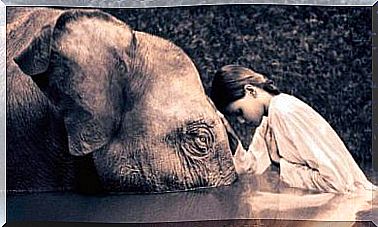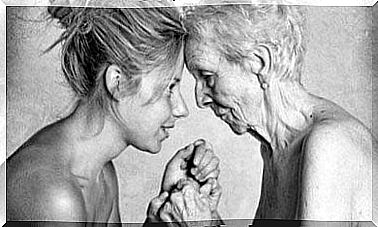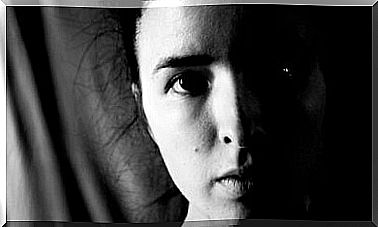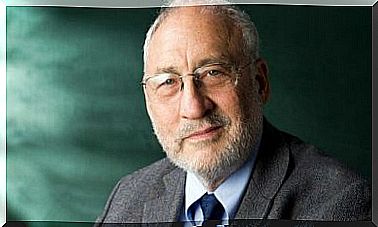Why Do We Live In Dependency Relationships?
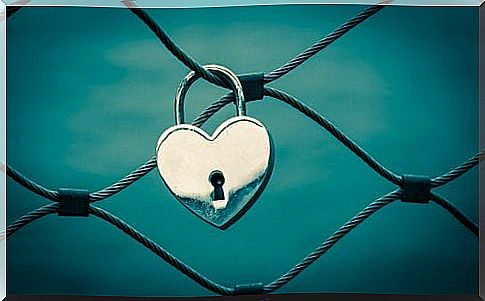
Everybody. Men or women, young or old / old, we can find ourselves in a relationship of emotional dependence. Sometimes we think that it cannot happen to us, but we must know that many people who did not believe it fell into this well of bitter water.
So, before being so radical with your assertions, ask yourself: what can lead us to generate a relationship of dependence? What do we feel when we are in such a relationship? How do we know this?
On the one hand, if we know what a domination-dependency relationship means, we will be able to realize it more easily. This will help find more strength to change this dysfunctional relationship situation. On the other hand, we will be able to detect the relationships of dependence that are around us and thus try to warn our loved ones.
What leads us to a relationship of dependence?
Everyone has expectations of themselves and their partner that they would like to see fulfilled. These ideas are influenced by social and cultural beliefs. In this case, we have learned that to be happy you have to be in a relationship and you have to put your partner first before anything else (Castelló, 2006). We are continually looking for couple relationships that complement us, so as to fill our gaps. We are looking outside instead of looking inside. This causes us to not be enough of ourselves, to feed our fears and to look in others for ways to allay them.
“If we don’t feel like ourselves enough, then we depend on the other and if we depend on the other, we are not free.”
-Villegas-
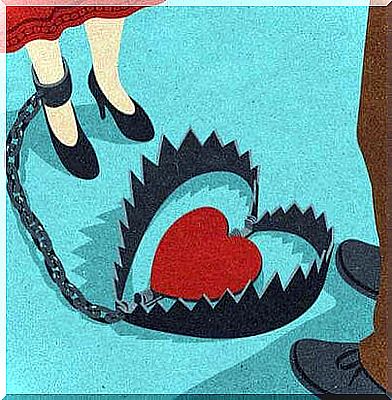
On the other hand, the way we establish emotional ties is very much linked to the way we experienced attachment in childhood (Guix, 2011). For example, if we have had too much protection, we will feel insecure and we will look for people to protect us. Conversely, if we have had little or no emotional connection, we are desperately looking for someone to give us the affection we need.
The type of relationship that we have observed in our parents also influences our relationship as a couple. For example, if in those around us we identify a relationship of domination and dependence, in which we can both love and be abused at the same time, we could establish a relationship of dependence, because these are the mechanisms that are specific to him.
In any case, the ideal is not to seek the half that completes us, because it does not exist. In reality, each of us are complete and responsible for our own happiness. In addition, we should create our own criteria to choose the way we want to build with our spouse, without being influenced (excessively) by external models. Knowing what we want and what we don’t want in a relationship is important.
How do we feel in a dependent relationship?
When we live in a relationship of dependence, we cannot be ourselves. We feel limited and canceled, always with a view to please or not to annoy our partner. We feel anxiety, mistrust, guilt, fear etc. “Symptoms” that can be due to low self-esteem, to the impression that we are worthless or that we are inferior to our spouse. We need each other excessively and we feel an aversion, fear or intolerance towards loneliness.
“If we are not ourselves, if we are only in the other, if we are the reflection, our self-esteem depends on whether the light reaches us. Like the moon which, when it does not receive sunlight, does not exist. ”
-Villegas-
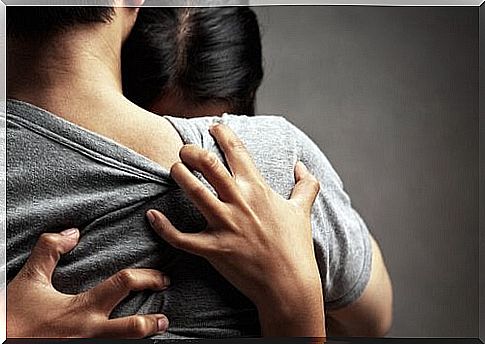
Additionally, when we are in a toxic relationship, we tend to put up with more than we should: nasty demeaning comments, incriminating stares and silences, blaming, an invasion of intimacy, questions. constant to control, lies… We can even endure verbal and physical assault. Sometimes, the idealization of the spouse leads us to excuse his behavior (fatigue, nervousness, he does what he can etc.) and we think that will change. Other times, it’s the precipice we imagine outside of this relationship that holds us back.
How to realize that we are in a relationship of dependence?
It is not easy to realize that one is immersed in a relationship of emotional dependence, but there are always indicators and signals that reflect this dysfunction such as, for example, emotions. Our own emotions show us that the relationship is not working well. In a healthy relationship, we shouldn’t feel fear or pain.
“Emotions expose problems so that reason can solve them.”
-Greenberg-
When we are in the relationship, we can lose the ability to distance ourselves and see only what we want from our partner. In fact, we don’t see what we are unwilling to see and often we do realize it after a long time (Grad, 2015). This is why it is important to listen and to consider – not to obey systematically – the sincere advice of people who know us well. Even if it never pleases to hear yourself say “This person is not suitable for you, you should leave them” and we think that others do not understand us… They might be right!

But why do we put up with a relationship that makes us suffer? Especially when it’s supposed to be a free choice because we consider our spouse to be an important support, a source of trust in which we can find some unconditionality. If not, there may be a need to break the momentum or reconsider the situation.
It is obvious that we can have a healthy relationship, free of addiction and pain, based on trust and respect. For this, it is important to know that we too are partly responsible: we are not responsible for what the other does but for what we do. If we change (we act, we ask for help…), the situation will change.
Also read:
